Isolated and spoken by a population of less than 400,000 individuals, the Icelandic language is a beloved and proud part of Icelandic culture. Standard Icelandic is originally based on the 12th century Old Norse and then somewhat remodelled again in the 19th century by adding and subtracting letters and words. It’s comparable to German with four cases. If you’d like to learn more about the history and intricacies, take a look here.
Icelandic is so rare, a lot of folks I’ve met around the world are amazed Iceland even has its own language! And it happens to be one of the oldest and hardest to master as a foreigner. Fortunately, the locals are also experts in English, a more favourable language amongst travellers, so you can easily get by without trying to pronounce one of those ridiculous volcano names like Eyjafjallajökull*.
With that being said, attempting even a few words in Icelandic will be much appreciated by most Icelanders you interact with. Practicing your skills on the go and in between sightseeing is a great way to spend your free time. Look to a helpful language app like Memrise using the Happy Campers wifi extra after you’ve scanned through this list of words and phrases I believe are the most useful. From my own experience, it’s nerve-wracking to speak your first few sentences in a new language, but Icelanders are the best support system and will praise you for speaking their mother tongue! So, try this essential guide to learning Icelandic.
Those Special Letters
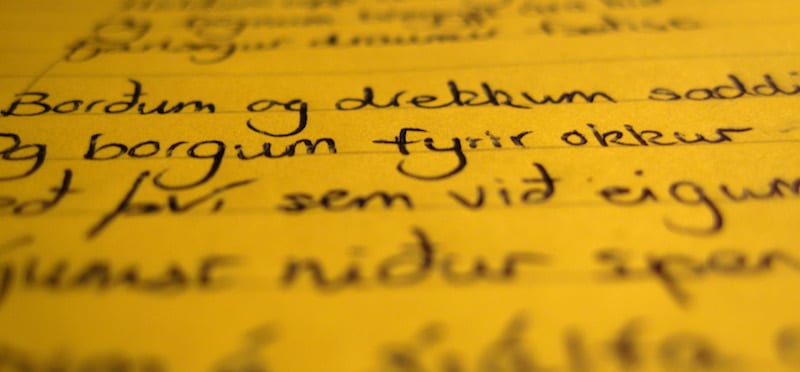
The Icelandic alphabet has 32 letters versus the 26 English has. You’ll notice Cc, Qq, Ww, and Zz (eliminated in 1973) do not exist in the alphabet; however, the more obscure letters make up for it. A, á, e, é, i, í, o, ó, u, ú, y, ý, æ and ö are vowels while the rest are consonants.
Ö, ö – sounds like “ouh”
Æ, æ – sounds like “eye”
Þ, þ – sounds like “th”
Ð, ð – also pronounced like “th”
Example: Það – it (sounds like “thath”)
Conversational Phrases
It’s important to get a hang of at least the basics when you’re in Iceland. Even if you try them once, you will be proud of such an accomplishment!
Hæ/Bless – Hi/Bye
Góðan dag/ Góða kvöldið – Good day/Good evening
Takk fyrir – Thank you
Já/Nei/Kannski – Yes/No/Maybe
Afsakið – Excuse me
Ég heiti…/ Hvað heitir þú? – My name is/What is your name?
Hvað segir þú?/Allt fínt – How are you? What say you?/All good
Ég skíl ekki – I don’t understand
Ég tala ekki íslensku – I don’t speak Icelandic
Going Out Phrases
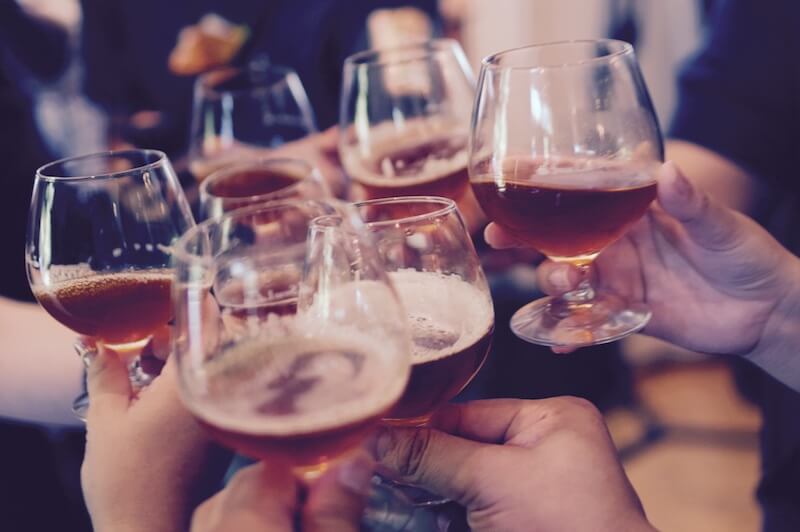
Whether you’re shopping, grabbing a bite, or drinking a pint, these handy phrases will help you at a shop, restaurant, and bar.
Ég ætla að fá – I’m going to get (order) *Completely polite to order with this phrase
Hvað kostar þetta? – How much is this?
Einn bjór, takk – One beer, thanks
Skál – Cheers!
Hvar er klósettið? – Where is the toilet?
Interesting Findings from a Foreigner (Me)
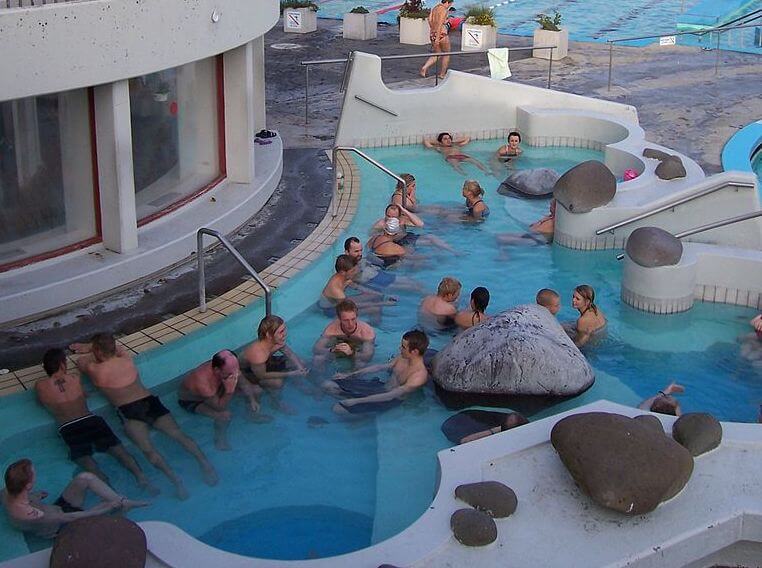
In place of the English word “um”, Icelanders use bara which means “just”. Some use it a lot, others not so much, but if you happen to eavesdrop on a conversation and you hear bara, bara, bara, it’s only a filler.
And never have I ever stumbled upon a language which uses an inhale as part of conversation, until now. Think of someone breathing in before a sigh, like an exasperated “oh!”. If a local is agreeing with someone or something and they don’t really have much to say or are filling in time, they’ll mumble a já or jú or jaja in this interesting manner. It’s pretty cute and I seem to have picked up the habit myself. Jæja!
Peculiar Phrases
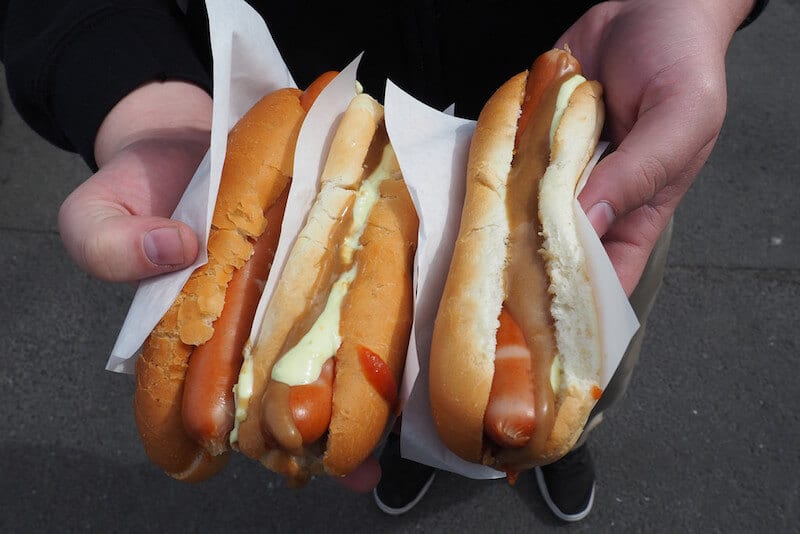
You definitely don’t need these in your vocabulary, but I get a good laugh with the literal translations. Perhaps you will, too.
Þetta reddast – It will be okay.
Meaning: No matter what, everything will work out the way it’s supposed to.
Áfram með smjörið – On with the butter!
Meaning: Move along and keep doing what you’re doing.
Það er rúsínan í pylsuendanum – That is the raisin at the end of the hot dog.
Meaning: Something that unexpectedly comes along. Usually, a positive surprise.
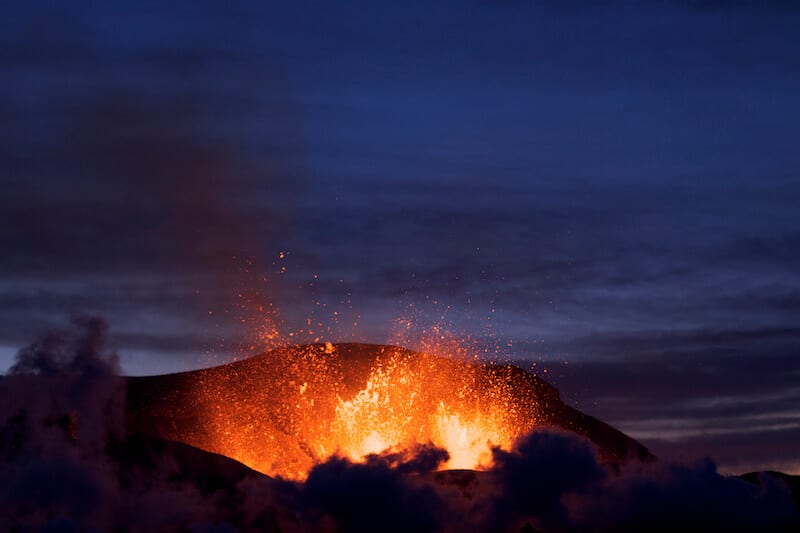
*I know you’re dying to find out how to pronounce Eyjafjallajökull since the beginning of this guide, and the locals will be extremely impressed by your newfound wisdom: Ey-yah-fyatt-yah-yoke-ut-tluh. The word is broken down into three smaller, more comprehensible words that will make you say, “Oh, this isn’t so difficult”. Eyja is island, fjalla is mountain, and jökull is glacier. In simple terms, Eyjafjallajökull literally means island mountain glacier. Icelandic just made a lot more sense, right?
So what do you think of this language? Let us know in the comments below!
Ready to book your Happy Camper?
Sjáumst! – See you!
To read more about Lea’s Happy Camper Adventures in Iceland check out these articles:
Snorkeling in Silfra with Scuba Iceland
What to Do in Reykjavik on a Rainy Day
A Happy Camper’s Guide to Vestmannaeyjar
Back